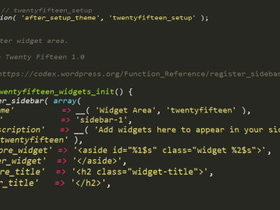- A+
脚本运行需要aiohttp,argparse,asyncio等库,先跑一遍,如果不能运行,安装缺少的库重新运行。
如果数据量小,可以用Excel宏处理。
Python脚本如下
import aiohttp
import argparse
import asyncio
import csv
import re
import sys
import time
from urllib.parse import urlparse
# Edit this to adjust how many HTTP requests you can make in parallel
CONCURRENT_REQUESTS = 20
PROTOCOL_PATTERN = re.compile(r'^\w+://')
DOMAIN_PATTERN = re.compile(r'^[^:]+://([^/:]+)')
async def get_status(session, url):
'''Return the status code for a URL'''
if PROTOCOL_PATTERN.match(url) is None:
url = 'http://' + url
domain = DOMAIN_PATTERN.match(url).group(1)
rate_lock = next((x for x in options.rate if x.matches(domain)), None)
if rate_lock:
await rate_lock.wait()
async with session.head(url, allow_redirects=True) as response:
return response.status
async def worker(file, output, options):
'''
Reads URLs as lines from a file, requests their status, and outputs the
results in CSV format. Spawn multiple of these to work on more than one
URL in parallel.
'''
start_time = time.time()
writer = csv.writer(output)
ssl_mode = False if options.ignore_ssl_errors else None
connector = aiohttp.TCPConnector(ssl=ssl_mode)
async with aiohttp.ClientSession(connector=connector) as session:
while True:
line = file.readline()
if line == '':
break
url = line.strip()
try:
status = await get_status(session, url)
writer.writerow([url, status])
except Exception as error:
writer.writerow([url, f'ERROR: {error}'])
if time.time() - start_time > 2:
output.flush()
class RateLimit:
'A lock that can only be acquired at a certain rate.'
def __init__(self, raw):
domain = None
rate_text = raw
if ':' in raw:
domain, rate_text = raw.split(':', 1)
try:
rate = float(rate_text)
except ValueError:
raise ValueError(f'Invalid rate format: "{raw}"')
self.domain = domain
self.rate = rate
self.interval = 1 / rate if rate > 0 else 0
self.last_use = 0
def matches(self, domain):
'Determine if this rate limit should be used for the given domain.'
if not self.domain:
return True
return domain == self.domain or domain.endswith(f'.{self.domain}')
async def wait(self):
'Wait for the next available usage according to the rate limit.'
remaining = 1
while remaining > 0:
remaining = self.last_use + self.interval - time.time()
if remaining > 0:
await asyncio.sleep(remaining)
self.last_use = time.time()
parser = argparse.ArgumentParser(description='Check the statuses of a list of URLs.')
parser.add_argument('path', help='path to a file that is a newline-delimited list of URLs')
parser.add_argument('--ignore-ssl-errors', action='store_true', help='ignore errors in SSL handshakes')
parser.add_argument('--rate', action='append', type=RateLimit, default=[], help='Maximum number of requests per second to make. Repeat with `--rate "example.com:2"` to set specific rate limits per domain.')
options = parser.parse_args()
# Sort rate limits by longest (i.e. most specific) domain first
options.rate.sort(key=lambda x: x.domain or '', reverse=True)
# Start event loop, open the URL list, and spawn workers to read from it.
loop = asyncio.get_event_loop()
with open(options.path) as urls_file:
workers = [worker(urls_file, sys.stdout, options)
for i in range(CONCURRENT_REQUESTS)]
loop.run_until_complete(asyncio.gather(*workers))使用说明
python get_urls.py example_urls.txt > statuses.csv
# Result in statuses.csv is like:
# gobbledegook,"ERROR: Cannot connect to host gobbledegook:80 ssl:None [nodename nor servname provided, or not known]"
# httpstat.us/404,404
# apple.com,200
# www.energy.gov,200
# www.gpo.gov,200
# Or use --ignore-ssl-errors to retrieve status for URLs with SSL handshake
# problems, e.g. invalid or expired SSL certificates.
python get_urls.py example_urls.txt --ignore-ssl-errors > statuses.csv
# To apply a rate limit of 2 requests/second:
python get_urls.py example_urls.txt --rate 2
# To apply a rate limit of 1 request/second for energy.gov, 2 requests/second
# for epa.gov, and 10/second for everything else:
python get_urls.py example_urls.txt --rate 10 --rate 'energy.gov:1' --rate 'epa.gov:2'
独角兽驿站
公众号









